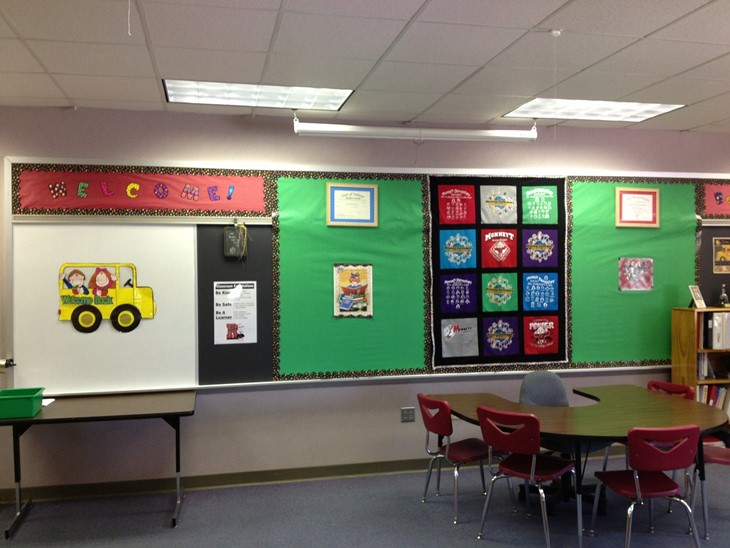Teacher Workload

Teachers perform a wonderfully rewarding service to society – educating the future generations. It is their job to help develop and grow youngsters, creating future engineers, nurses, police officers, accountants, politicians, builders. They are shaping the future.
It is also one of the most time-demanding professions.
Long Hours, Lots of Stress
Research shows that one in four teachers works more than 60 hours each week. A survey by the Department of Education concluded that the average teacher works almost 55 hours per week. That figure considerably higher than many other professions.
With great responsibility comes a great deal of time and effort. The result? Many teachers are put off the profession, due to stress caused by the added demands of the job and the poor work-life balance.
In fact, a study by National Education Union found that 81% of teachers they asked had considered leaving the profession in the last year, due to the workload. A significant reason for this is the amount of work now required outside the classroom. Marking, planning and administration tasks such as data entry take a huge chunk of a teacher’s time. That is before you include meetings with parents and other relevant parties. Teachers say they now spend less than half their time in the classroom.
What can be done?
There has been plenty of research done in this area, aiming to provide teachers with a way of reducing their workload. Many areas, such as admin and data entry, are beyond a teacher’s control. However, there are changes they can make - with regards to marking and feedback - that could help free up their time.
The Southwark Teaching School Alliance produced a report entitled Mark Less, Mark Better!. This research summarised ways of reducing the amount of marking and feedback required.
The study found that detailed written feedback was not having a big enough impact on pupils in proportion to the time it was taking. They found that the most powerful feedback came at the point of the work being done. However, often the written feedback was produced simply to meet the demands of third parties, such as senior leaders or Ofsted.
Instead, they suggest a combination of different approaches, placing more emphasis for assessment on the pupil. Self/Peer-Assessment, live marking in lesson and one to one or small group conferencing with each pupil were all suggested as alternatives. The benefits of these? They put less pressure on the teacher’s workload and encourage the pupil to own their own learning. This, the report concludes, ensures that all feedback focusses on pupil progression rather than ticking boxes.
What else can teachers do?
Alongside testing out smarter marking methods, there are other changes teachers can make to improve their work-life balance. EdCentral list three things teachers should stop doing to help this.
Teachers should stop taking their work they don’t have time for home, they say. This creates pressure to complete the work, restricting the time they can spend relaxing with loved ones. Secondly, emails and messages out of work hours should be left alone if possible, as this blurs the line between work and home. Thirdly, they suggest scheduling tasks, rather than writing to-do lists. This is scientifically proved to increase productivity.
Other more generalised time management techniques, such as prioritising, categorising and sharing work can also be useful in managing your workload.
What are the Government doing?
The Government insist that they are working to reduce the workload of teachers. Regular studies and surveys are carried out to source the underlying issues creating heavy workloads. In 2018, they published a workload reduction toolkit, which they have since updated, and they also regularly claim to take action to assist teachers in creating a better work-life balance.
However, a lack of funding and the requirement of teachers to prove they are meeting various standards and completing tasks mean that these have little impact.
Former Education Secretary Damian Hinds also suggested that schools need to get rid of the email culture that has taken over, as well as embracing the rise of Artificial Intelligence (AI). Parent-teacher communication has changed since emails became commonplace, with most teacher inundated with mail from their pupil’s guardians, on top of emails from senior leaders. Reducing this, teamed with using AI to deliver personalised learning and assessment, could see a significant number of hours reduced from a teachers workload.
Kategorie
Featured insights
Labour Proposal: Abolishing Ofsted
Climate Change is one of the biggest challenges facing the world and it's the youth who are leading the fight. Therefore, teachers have a massive role to play.
Czytaj więcejRecent insights
Here’s what candidates DO and DON’T want to see on your social media
Figuring out what engages potential employees online
Read moreJak zostać programistą C++ ? Studia, prywatny kurs czy samodzielna praktyka?
Wybór pomiędzy studiami informatycznymi a dedykowanym kursem dla programistów c++ jest jednym z najczęstszych dylematów, przed jakimi stoją osoby chętne rozwijać swoją karierę w branży IT. Choć obydwie metody są słuszne i są w stanie przygotować młodego kandydata do pracy, każda z nich ma swoje wady i nie jest wyborem idealnym dla każdego początkującego specjalisty IT. Jak zostać programistą C++ i znaleźć pracę we Wrocławiu?
Read more